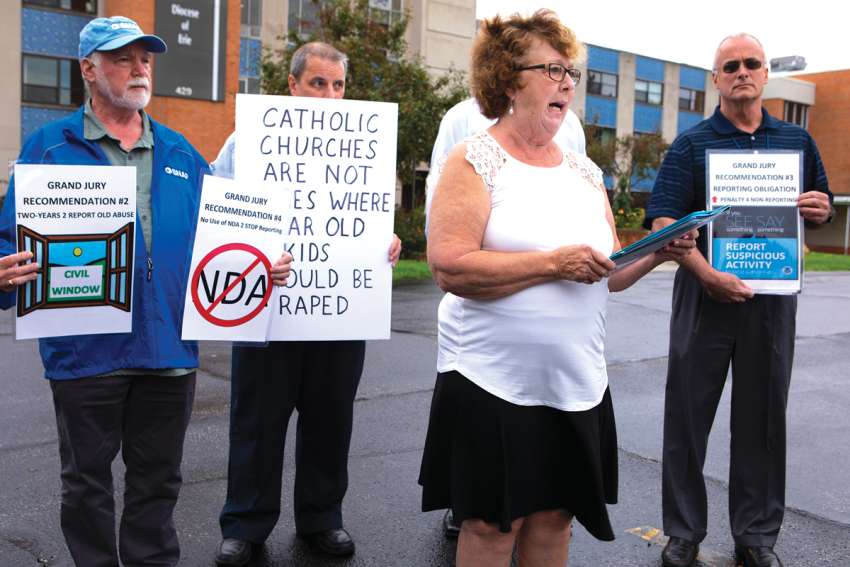A few days before I came upon him, I sat in a support group held by the Survivors Network of those Abused by Priests (SNAP). One man abused as a child was exploding with rage as he shared how the bishop involved with his case refused to meet with him. I was afraid to be in that room.
So, that foggy early winter night a decade ago, when I spotted Cardinal Thomas Collins illuminated by a streetlight on Queen’s Park Crescent, I felt afraid for him. What if that wounded survivor happened to be the one to cross his path that evening? Instead, it was I. Until his driver arrived to escort him away safely, I stood with the Cardinal, exchanging pleasantries to mask my concern.
Despite the desire on behalf of Church leaders and laypersons to consider the abuse crisis “dealt with,” the sort of rage that emanates from such deeply wounded souls as I encountered in the support group continues to exist.
An announcement by the organization Outrage Canada (outragecanada.ca) in November 2023 is the latest eruption from this volcano of rage.
Survivor associations including SNAP, ACTS (Advocates for Clergy Trauma Survivors of Canada), as well as the general lay group CLC (Concerned Lay Catholics) figure among the prior lava flows manifesting the suffering and anguish caused by clergy sexual abuse in the Canadian Church.
Unlike the relatively weak domestic impact thus far of the other groups, Outrage Canada is poised to cause an eruption of damage to the Roman Catholic Church in Canada as damaging as was the 1980 explosion of Mount St. Helens in Washington State. The group is calling for a federal investigation of historic and current sexual abuse crimes committed against children in the Canadian Catholic Church. Its three founders include two lawyers who are frequently involved in civil lawsuits against the Church. Sadly, the cries of victim-survivors are rarely heard without the assistance of high-powered and high-priced lawyers.
Is such a federal inquiry the right approach to resolving the pain fueling this cry for justice and compassion?
To answer this question, we need accurate data about what abuse has taken place and about how victim-survivor complaints have been handled. I agree with Outrage Canada that an independent, third-party reporting centre should be set up to handle clergy sexual abuse complaints. Data gathered from such a centre would help determine next steps.
Currently, what we read in the media about abuse is based on interviews with people having valid, but limited perspectives of how cases are handled. Bishops and diocesan spokespersons focus on improvements they see, and advocates focus on stories they have heard from a limited pool of victim-survivors.
Another challenge to having accurate data on historical cases is that some complaints made against clergy might only be kept in the secret archives of dioceses for which only the bishop has the key. Such complaints may or may not have been reported to the police.
A third-party reporting centre would be helpful not only for data accuracy, but also for credibility and safety.
For any organization, an investigation conducted by the organization itself, as sincere and noble an effort as it might make, would not be perceived as credible as would one conducted by a neutral third-party.
From my own, limited pool of contacts, some victim-survivors have told me that they found the official diocesan complaint handler to be intimidating, so did not go forward with their complaints. Often the person handling a complaint is a priest whose clerical garb may be triggering for a potential complainant and who may not be “trauma-informed.” If investigators are not trained in recognizing how trauma victims react to incidents of abuse, they might wrongfully find a victim not credible.
The victim-survivors I have interviewed have been open to meeting with bishops to discuss their concerns. Let’s pray that meetings will be held between Church leaders and victim-survivors, where all participants will be safe, to address the root causes of the rage.
(Lea Karen Kivi is the president of Angela’s Heart Communications Inc.)


